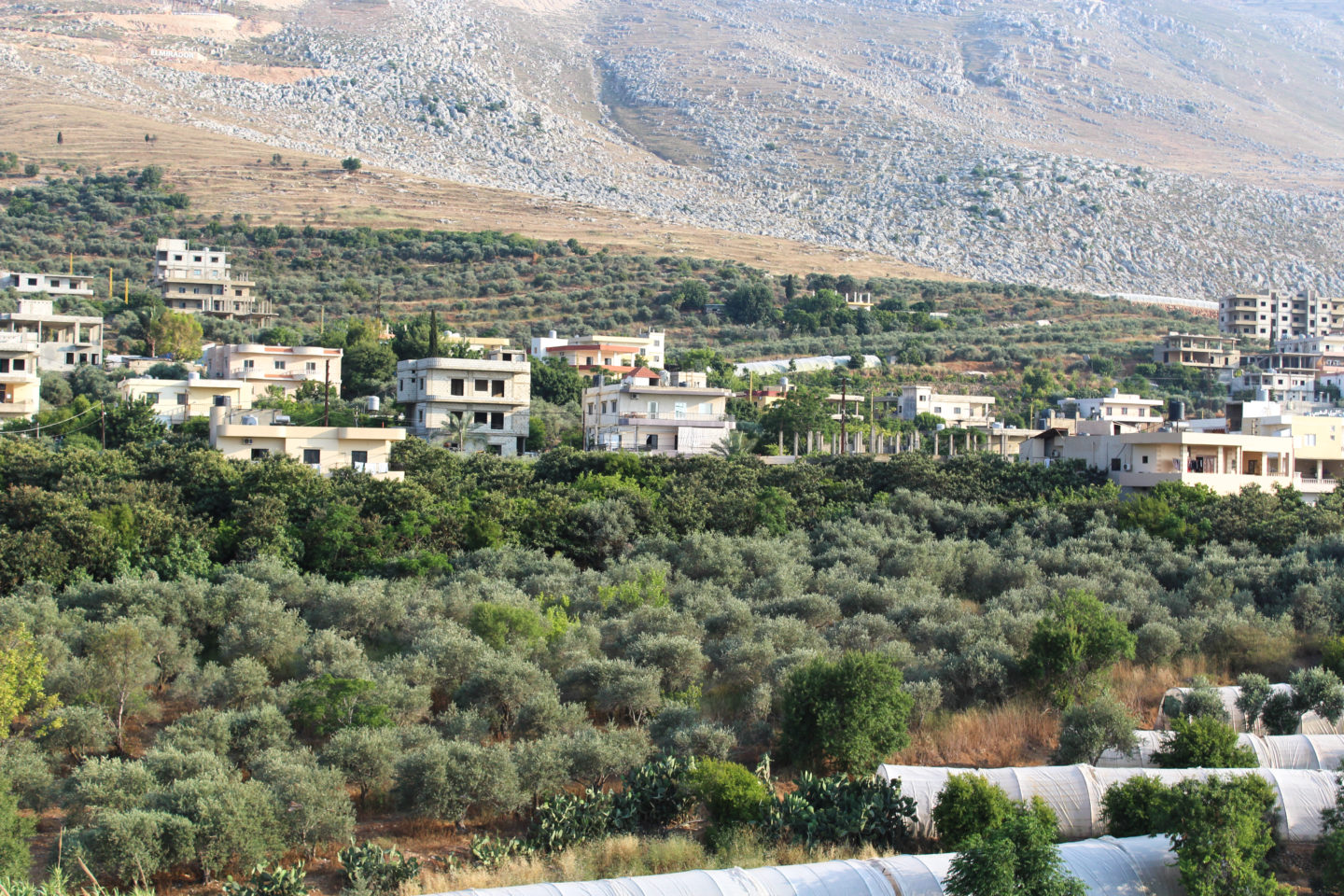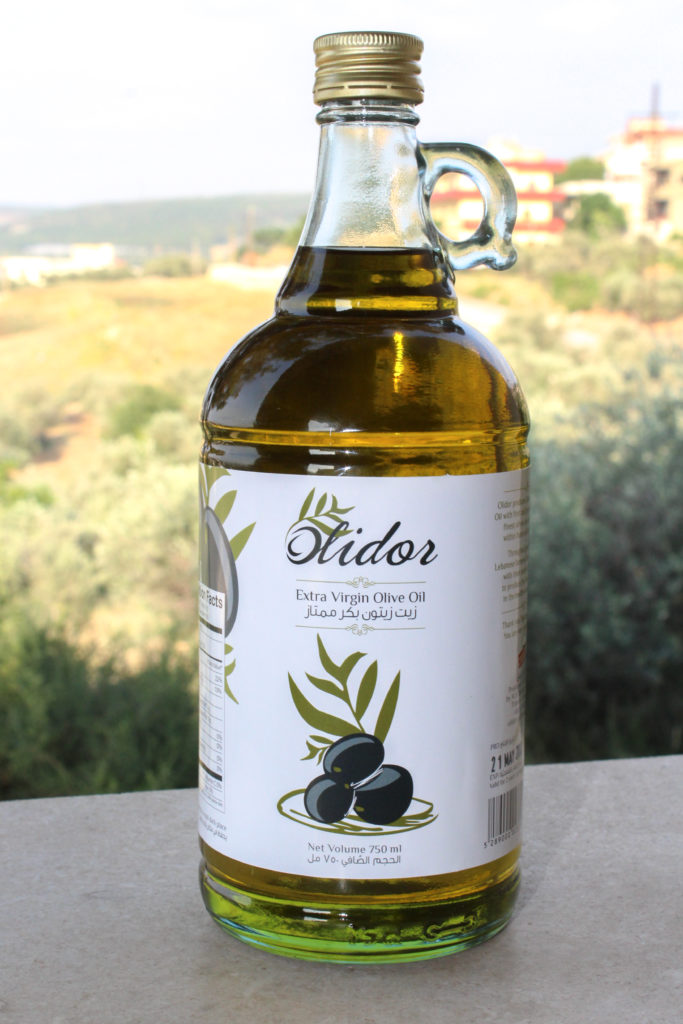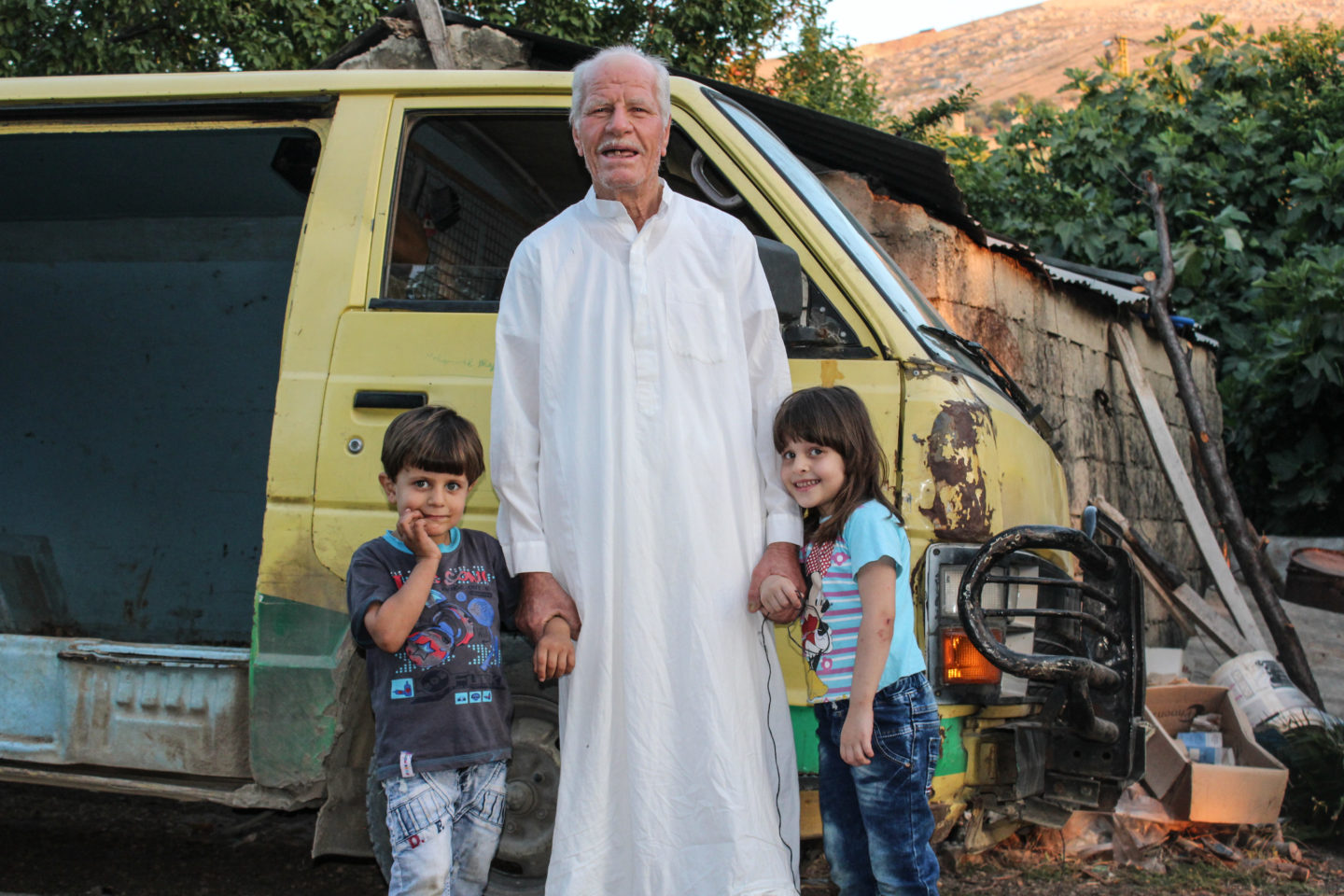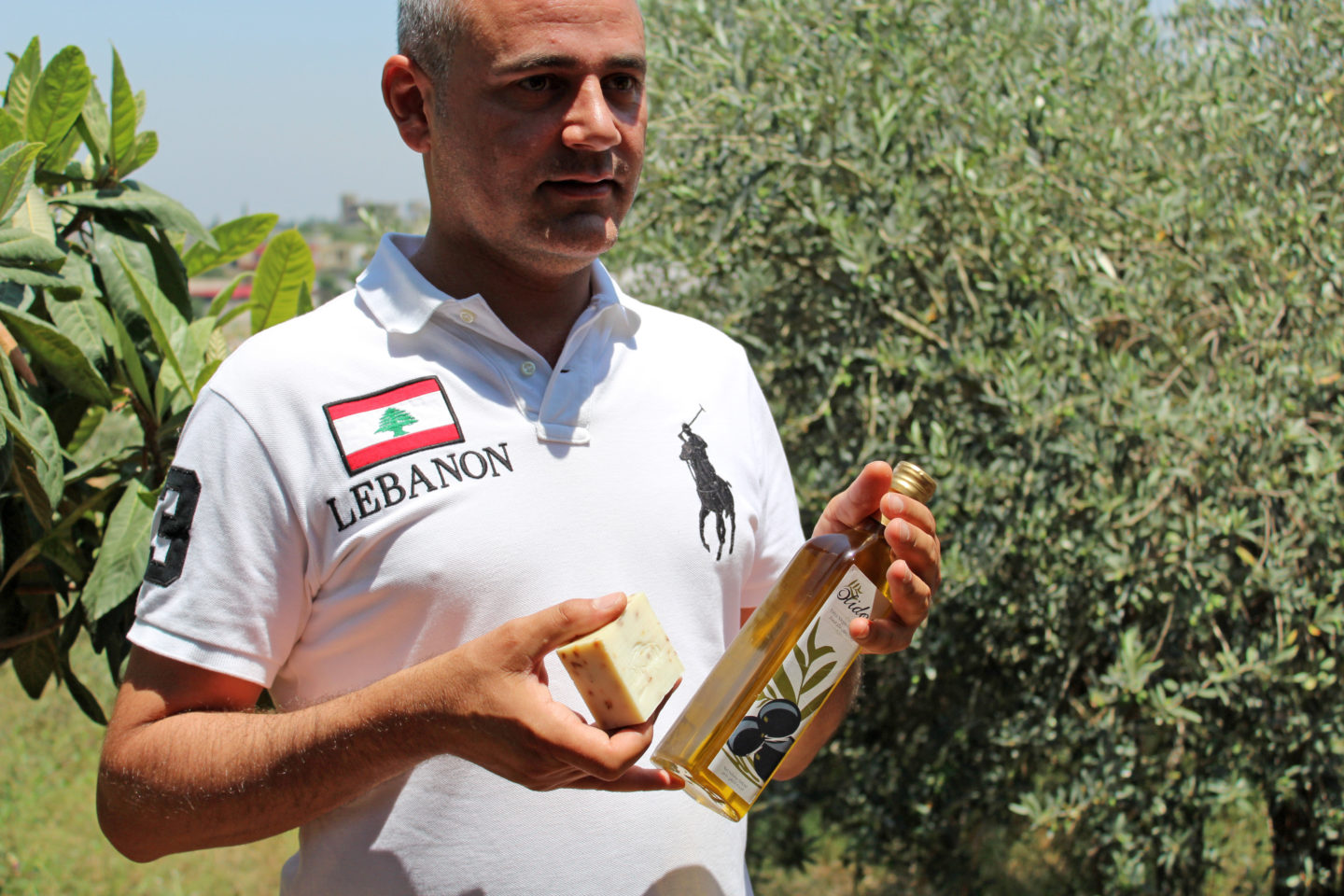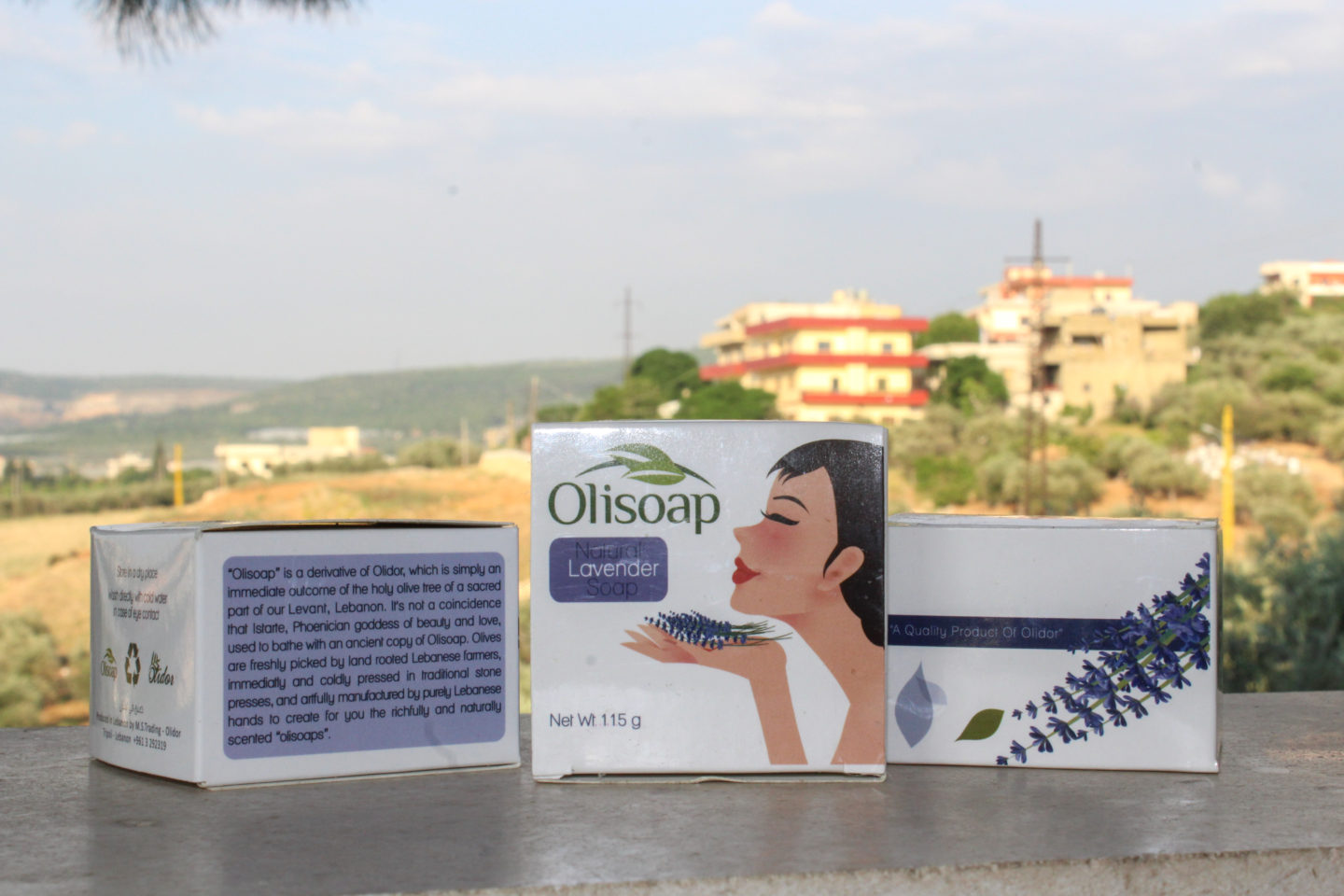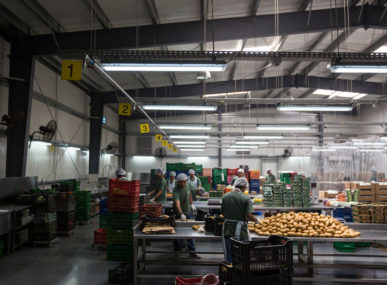El Dheiby sees Olidor as an opportunity to modernize olive oil production in a way that will benefit his family and farmers in the community, as well as preserve the agricultural identity of the area. By selling to Olidor, farmers profit from producing an added value product and earn more competitive prices.
One of the greatest struggles of olive oil cultivation is that farmers often sell their harvest incrementally throughout the year. Today, Olidor buys the entire supply of olives from the 40 to 50 farmers in the area as soon as they are plucked from the branches. “By buying the olives in the autumn during olive season rather than throughout the year, farmers are getting money all at once and can spend that on the new school year and actually plan for some investments,” El Dheiby said.
Abdullatif Abuhussein is one of the farmers Olidor relies on for olives. The 75-year-old farmer has always cultivated his trees by hand, and is financially reliant on the crop. Now, Olidor buys 50 gallons of Abuhussein’s olives at once, which has allowed him to purchase another cow, more chickens, and fund his grandson’s education at a local private school.
Another challenge facing the Lebanese olive oil industry is global competition. Though Lebanon produces more than 11,300 tons of olive oil each year, most restaurants and hotels opt for oils that have been illegally smuggled from Turkey or Syria — a cheaper product that has not been charged tariffs. Smuggled olive oil is of particular issue in North Lebanon which is close to the border and the neighboring Syrian city of Homs.
Traditional Lebanese products meet the market:
In 2014, Olidor started another brand called Olisoap, creating natural handmade soap from the olive oil that falls below extra virgin standards. It is produced over the course of 45 to 60 days using a cold soap making process, one that is currently unique in the Lebanese soap market. Olisoap is infused with lavender, pine, and chamomile and sold in local beauty centers, pharmacies, and specialized supermarkets.
